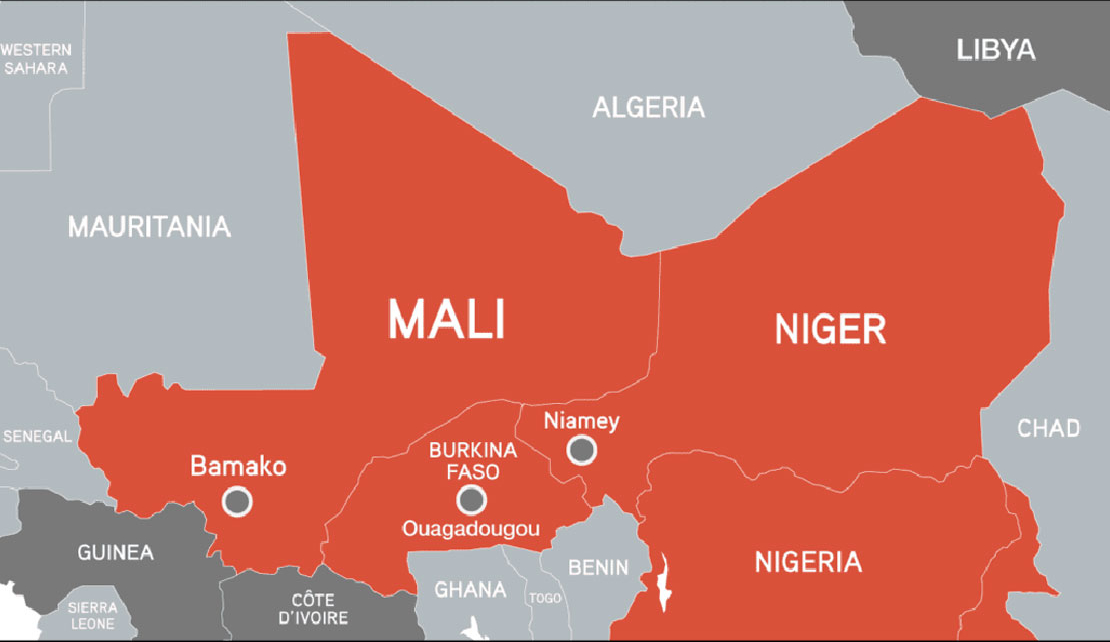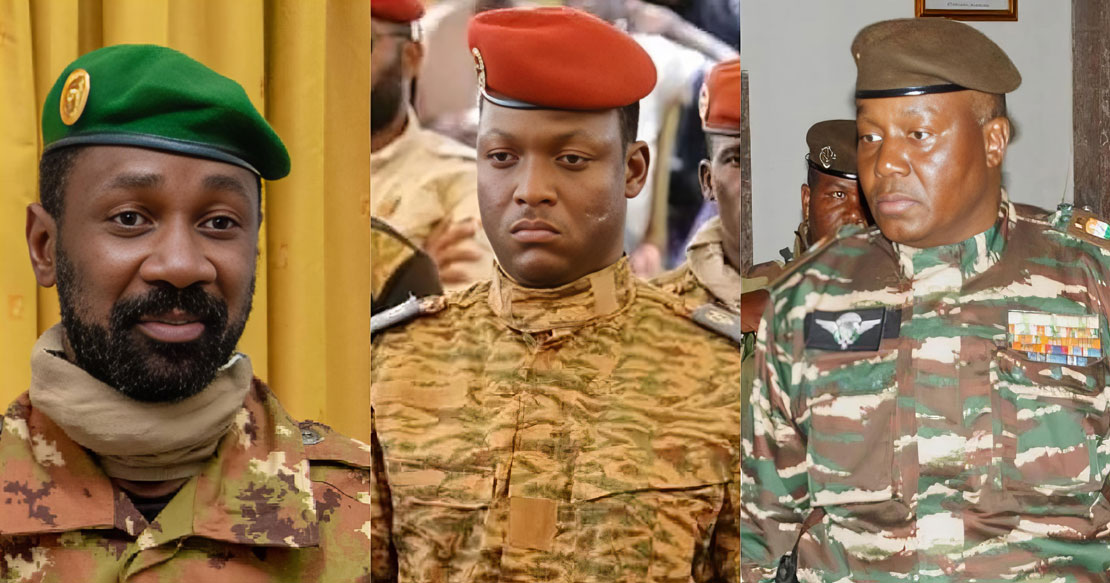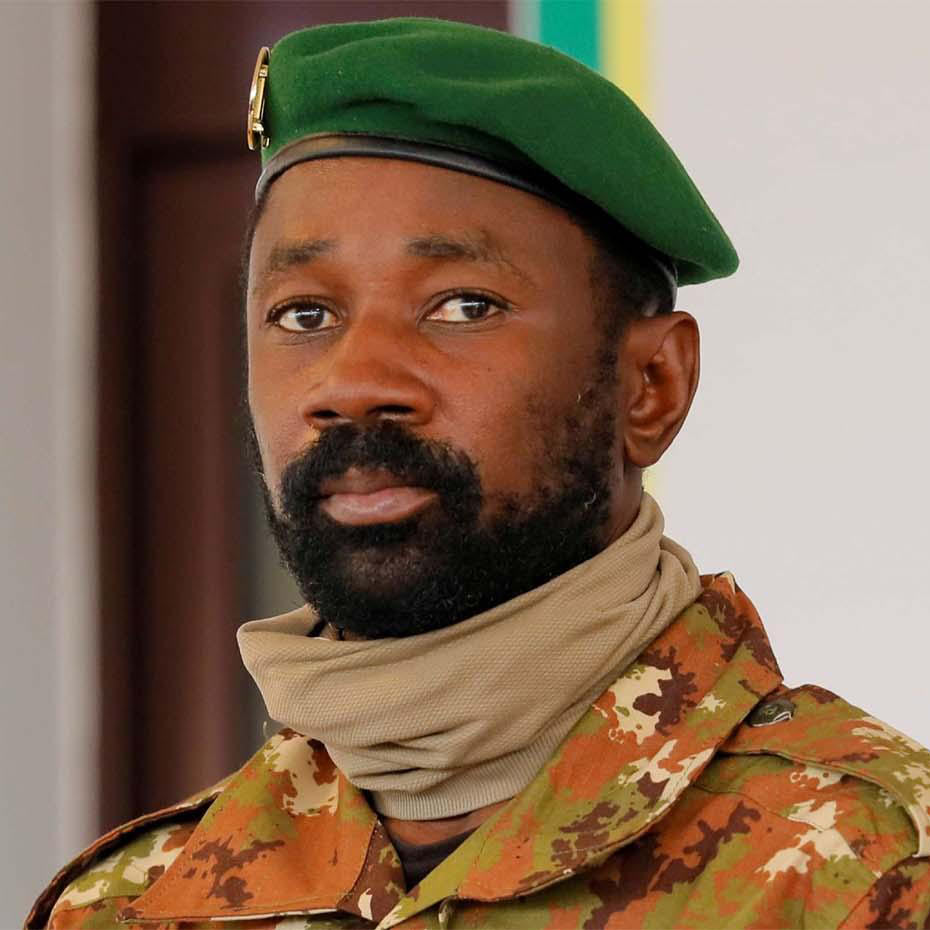AFRICA | Shockwaves hit ECOWAS as Mali, Niger and Burkina Faso exits in favour of AES Alliance

BAMAKO, Mali, February 4, 2024 – The departure of Mali, Niger, and Burkina Faso from the Economic Community of West African States (ECOWAS) is sending shockwaves through the region.
This development casts significant doubt on the future cohesion and stability of the West African economic alliance, marking a historic shift driven by widespread support from the Malian public and revealing deep-seated divisions between Mali and the regional bloc.
In a striking display of solidarity, a vast number of demonstrators, predominantly youths and schoolchildren, flooded the streets of Bamako. They carried banners with slogans like "Down with ECOWAS. Long live AES," expressing steadfast support for the Malian junta's decision to break away from ECOWAS and align with the Alliance of Sahel States (AES), a coalition led by Niger and Burkina Faso.

Mali, Niger, and Burkina Faso have levied serious accusations against ECOWAS, criticizing it for perceived neglect and for imposing "illegitimate, inhumane, and irresponsible" sanctions following their respective coups.
ECOWAS has stated that it has yet to receive official notification of the countries' intent to exit. The bloc's protocols stipulate that withdrawing from the organization should take a year, emphasizing the complex nature of such a departure.
Nonetheless, ECOWAS has reaffirmed its dedication to keeping Burkina Faso, Niger, and Mali within its fold, focusing on negotiation to break the political stalemate.
The exit of these nations represents a pivotal moment for the 15-member coalition, established in 1975 to promote economic integration among its members. Recently, ECOWAS has faced the challenge of addressing a surge in military coups within the region, with Mali experiencing coups in 2020 and 2021, Burkina Faso in 2022, and Niger in 2023.
Following these events, ECOWAS suspended all three countries and implemented strict sanctions against Niger and Mali, reflecting its efforts to sustain regional stability and cohesion amidst mounting dissatisfaction with the management of vast natural resources.

The international community is closely monitoring the situation, wary of the potential impacts on regional security, economic integration, and the overall pursuit of stability in an already volatile West African context.
Last September, the leaders of the three states, who came to power through military coups, vowed mutual support in the face of rebellion or external aggression.
The formation of the Alliance of Sahel States, spearheaded by Mali's leader Assimi Goita, has intensified the discord between these nations and ECOWAS, which has repeatedly threatened the use of force to restore constitutional governance in Niger.
Goita's announcement of the Liptako-Gourma charter on his X account, establishing a framework for collective defense and mutual assistance among the alliance members, underscores the gravity of this pact.
The charter's provision that an attack on one signatory is viewed as an aggression against all demonstrates the deepening ties and mutual commitments among Mali, Niger, and Burkina Faso.
As tensions continue to escalate, the implications of this rift within ECOWAS are becoming increasingly apparent. While the junta in Mali enjoys widespread domestic support for its actions, there are also internal criticisms concerning the potential negative consequences on diplomacy and regional integration.
The bold move by these former Francophone colonies to withdraw from ECOWAS signals a challenging period ahead, as the bloc navigates security concerns and strives to maintain unity in a region facing growing fragmentation.
